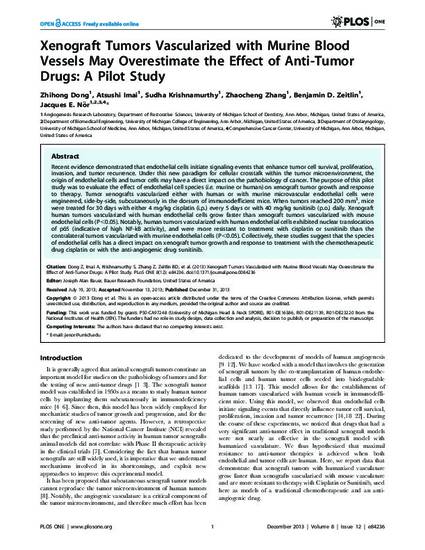
Recent evidence demonstrated that endothelial cells initiate signaling events that enhance tumor cell survival, proliferation, invasion, and tumor recurrence. Under this new paradigm for cellular crosstalk within the tumor microenvironment, the origin of endothelial cells and tumor cells may have a direct impact on the pathobiology of cancer. The purpose of this pilot study was to evaluate the effect of endothelial cell species (i.e. murine or human) on xenograft tumor growth and response to therapy. Tumor xenografts vascularized either with human or with murine microvascular endothelial cells were engineered, side-by-side, subcutaneously in the dorsum of immunodefficient mice. When tumors reached 200 mm3, mice were treated for 30 days with either 4 mg/kg cisplatin (i.p.) every 5 days or with 40 mg/kg sunitinib (p.o.) daily. Xenograft human tumors vascularized with human endothelial cells grow faster than xenograft tumors vascularized with mouse endothelial cells (P<0.05). Notably, human tumors vascularized with human endothelial cells exhibited nuclear translocation of p65 (indicative of high NF-kB activity), and were more resistant to treatment with cisplatin or sunitinib than the contralateral tumors vascularized with murine endothelial cells (P<0.05). Collectively, these studies suggest that the species of endothelial cells has a direct impact on xenograft tumor growth and response to treatment with the chemotherapeutic drug cisplatin or with the anti-angiogenic drug sunitinib.
Available at: http://works.bepress.com/benjamin-zeitlin/31/
